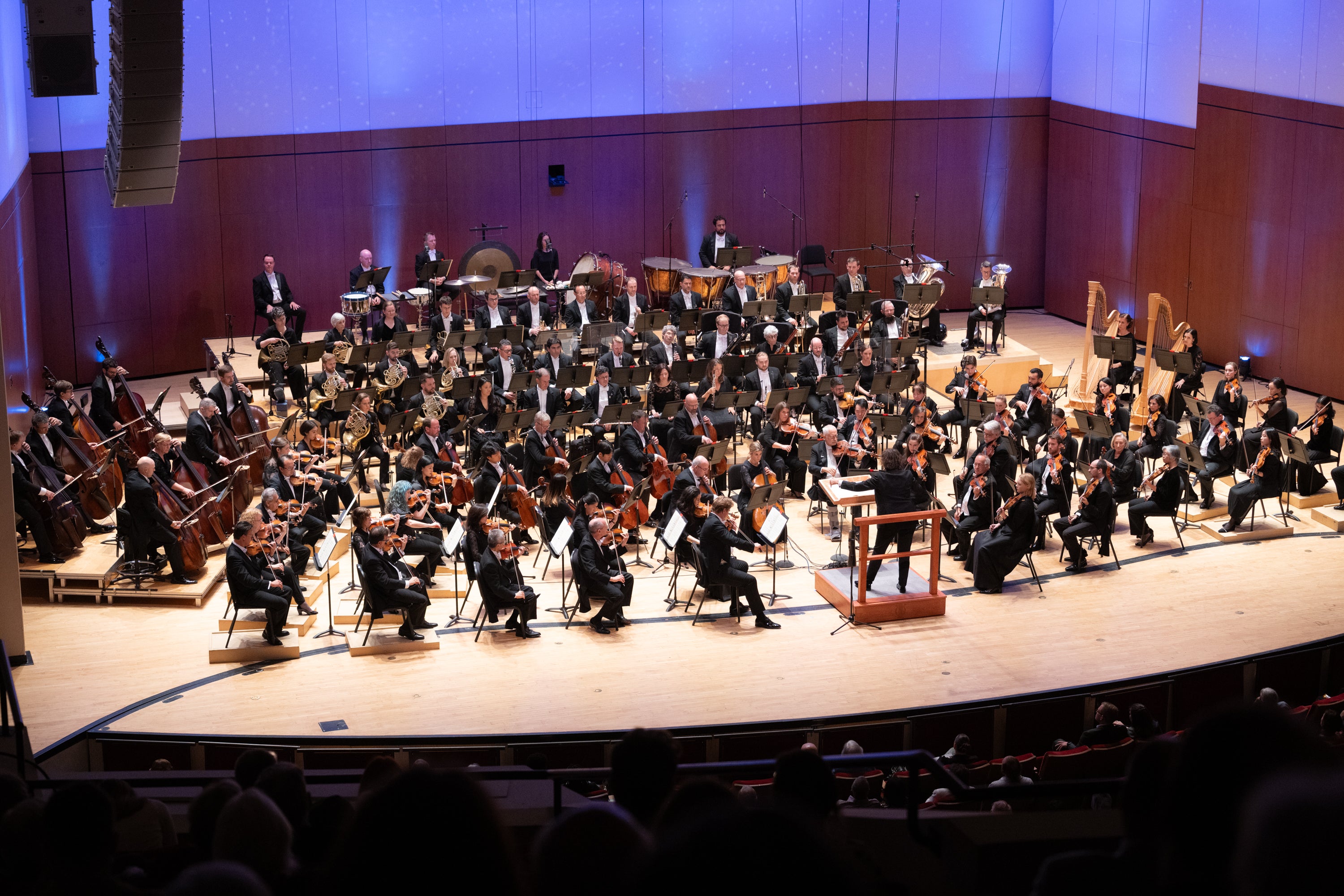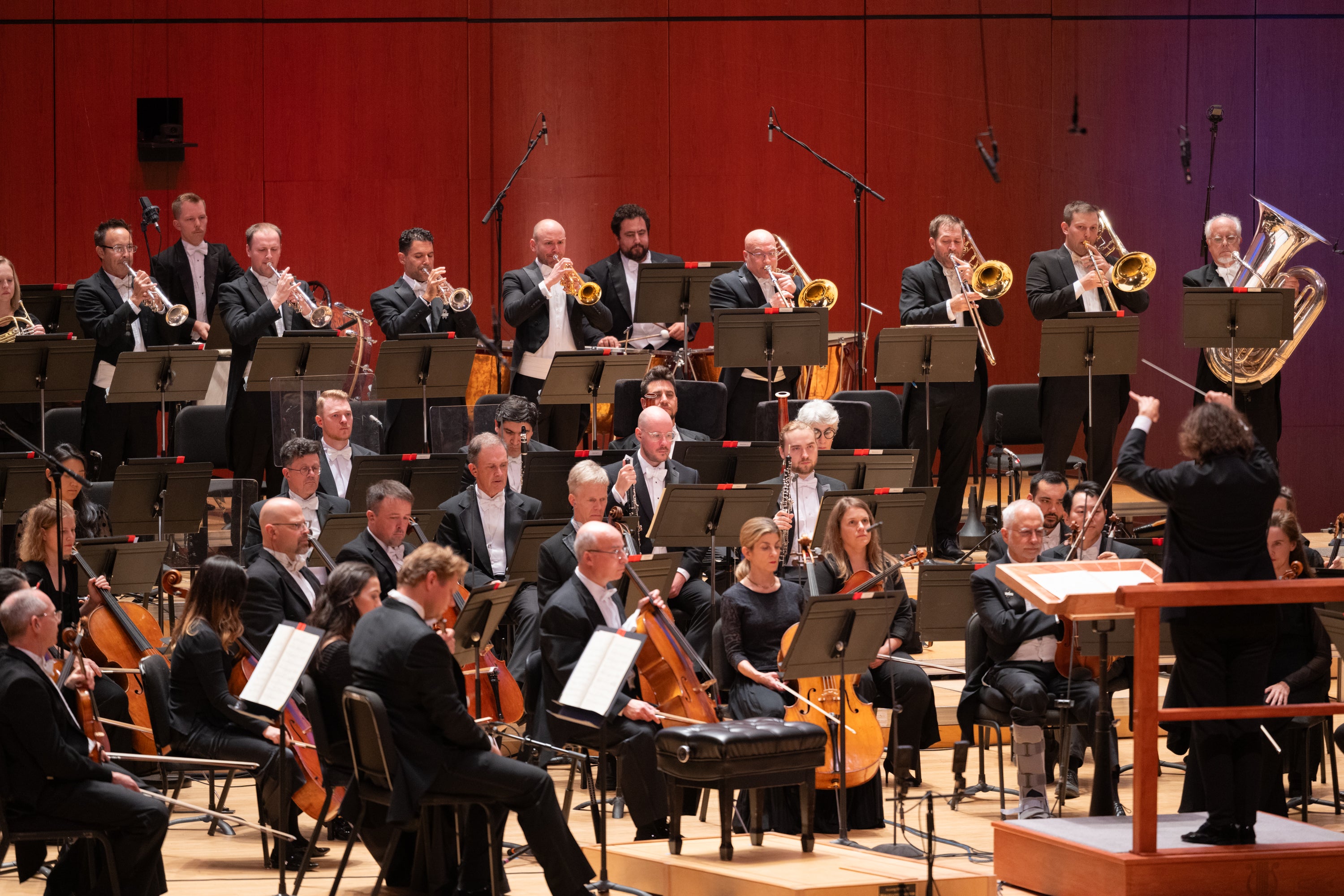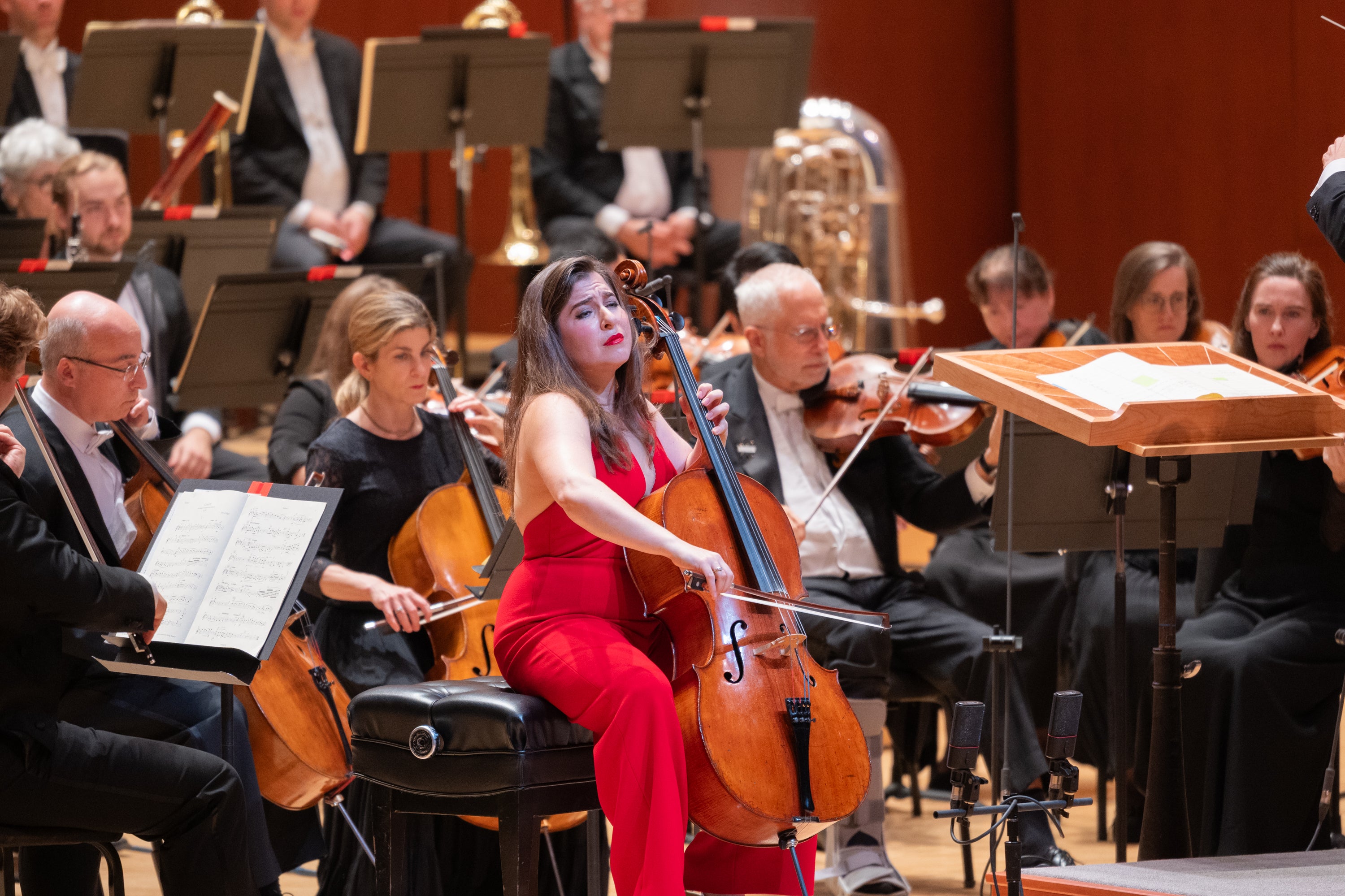ASO opens season with works reflecting on our current time
Concert Reflections with Jon Ross
In this new series from local music journalist Jon Ross, he reflects on the ASO’s Delta Classics Series with fresh insights into each concert, hot off the presses.

OCT 4 | Friday night, the Atlanta Symphony Orchestra opened its 81st season with a program tailored to our current American reality.
In the first half of the concert, Music Director Nathalie Stutzmann presented pieces born of, or reacting to, conflict. (The program repeats Saturday night at 8 p.m., with a matinee at 3 p.m. on Sunday.)
During the traditional season-opening flourish of “The Star Spangled Banner,” members of the bass section sang, in full-throated glory, along with the audience. This bass sound came from stage right; continuing Stutzmann’s experiments to strike the right sound balance, the basses stood on risers behind the violins, who were sitting on either side of the conductor. In the musical half circle, cellos came next, then the violas. Musical chairs, to be sure, but Friday, the orchestra sounded rich and vibrant, so maybe the shuffling worked.

The brass, standing in the back with the percussion, took the spotlight next for Aaron Copland’s Fanfare for the Common Man. It’s an explosive three-minute shot of endorphins, an earworm of a theme associated now with everything from Olympic glory to space shuttle exploration. On Friday, when Michael Moore on tuba joined the full complement of brass in wild exaltation, I wanted to jump up and start training for the next summer games.
The piece isn’t about games, though. Copland wrote the short, rousing tune in the early 1940s at the request of the Cincinnati Symphony Orchestra. His inspiration? War-time patriotism. “It was the common man, after all, who was doing all the dirty work in the war and the army,” Copland said. “He deserved a fanfare.”
Cellist Alisa Weilerstein is a must-see guest. She debuted with the ASO in the 2013 season opener, playing Shostakovich’s first cello concerto, to return almost a decade later with Golijov’s Azul. Friday, she performed Edward Elgar’s contemplative Cello Concerto in profound clarity, mixing stunning highs with exquisitely resonant lows. She skipped gracefully through dizzying technical passages and explored the dark sonorities of her instrument to conjure moments full of sorrow and regret.
Weilerstein played up the mournful introspection of the work. The ASO proved a beautiful partner, propping up her solo voice, with Stutzmann an attentive advocate.

If the cello concerto sounded at times grave and elegiac – maybe there was a note of disappointment in humanity conveyed in Weilerstein’s tone appropriate to the melancholy Elgar felt after the losses of World War I – Strauss's programmatic Ein Heldenleben resounded with hope for a sunny tomorrow. The cello section, anchored by long-tenured musicians Daniel Laufer and Karen Freer, took the opening melody and sang out in grand style. Later, concertmaster David Coucheron emerged from the ensemble to play labyrinthine, twisting melodies with great joy and finesse.
This program screamed for relevance amid the tensions of modern-day America. The works are also a bit of foreshadowing: The ASO will celebrate America’s 250th birthday in January with Leonard Slatkin conducting his brand-new Schubertiade: An Orchestral Fantasy. But it’s not a one-off; the orchestra is dedicating four concerts to the celebration, featuring works like Artie Shaw’s Clarinet Concerto, Bernstein’s Symphonic Dances from West Side Story and On the Bridge of the Eternal by Christopher Theofanidis.
As another orchestral season begins, it’s instructive to remember that every listener processes concerts differently. Some listen with their favorite recording in mind, searching out differences in interpretation. Others hunt for foibles, straining to hear a cracked note or other musical slipup. That is important, for sure, but when a program of old music speaks so well to the current environment, it might be best to just process and think. Music helps us make sense of the world. It has the power to subtly react to the goings-on outside the concert hall. And if nothing else, concert-going at least gives audience members time to reflect. It provides comfort. Listening to mournful music played well is a salve, a balm for these times. On Friday, it even felt a bit subversive.